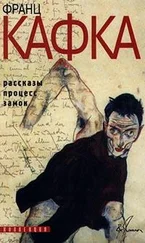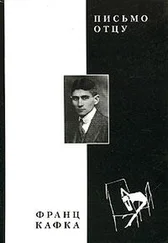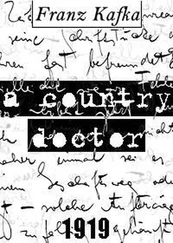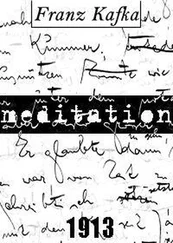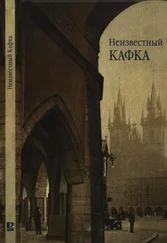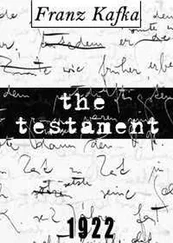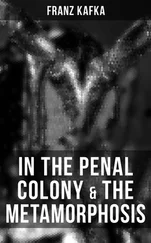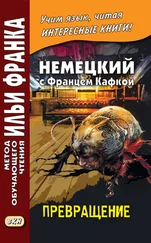Франц Кафка - In the Penal Colony
Здесь есть возможность читать онлайн «Франц Кафка - In the Penal Colony» весь текст электронной книги совершенно бесплатно (целиком полную версию без сокращений). В некоторых случаях можно слушать аудио, скачать через торрент в формате fb2 и присутствует краткое содержание. Год выпуска: 2015, Издательство: epubBooks Classics, Жанр: Классическая проза, на английском языке. Описание произведения, (предисловие) а так же отзывы посетителей доступны на портале библиотеки ЛибКат.
- Название:In the Penal Colony
- Автор:
- Издательство:epubBooks Classics
- Жанр:
- Год:2015
- ISBN:нет данных
- Рейтинг книги:5 / 5. Голосов: 1
-
Избранное:Добавить в избранное
- Отзывы:
-
Ваша оценка:
- 100
- 1
- 2
- 3
- 4
- 5
In the Penal Colony: краткое содержание, описание и аннотация
Предлагаем к чтению аннотацию, описание, краткое содержание или предисловие (зависит от того, что написал сам автор книги «In the Penal Colony»). Если вы не нашли необходимую информацию о книге — напишите в комментариях, мы постараемся отыскать её.
In the Penal Colony — читать онлайн бесплатно полную книгу (весь текст) целиком
Ниже представлен текст книги, разбитый по страницам. Система сохранения места последней прочитанной страницы, позволяет с удобством читать онлайн бесплатно книгу «In the Penal Colony», без необходимости каждый раз заново искать на чём Вы остановились. Поставьте закладку, и сможете в любой момент перейти на страницу, на которой закончили чтение.
Интервал:
Закладка:
Now he stood there naked. The Traveler bit his lip and said nothing. For he was aware what would happen, but he had no right to hinder the Officer in any way. If the judicial process to which the officer clung was really so close to the point of being cancelled—perhaps as a result of the intervention of the Traveler, something to which he for his part felt duty–bound—then the Officer was now acting in a completely correct manner. In his place, the Traveler would not have acted any differently.
The Soldier and the Condemned Man at first didn't understand a thing. To begin with they didn't look, not even once. The Condemned Man was extremely happy to get the handkerchiefs back, but he couldn't enjoy them very long, for the Soldier snatched them from him with a quick grab, which he had not anticipated. The Condemned Man then tried to pull the handkerchiefs out from the Soldier's belt, where he had put them for safe keeping, but the Soldier was too wary. So they were fighting, half in jest. Only when the Officer was fully naked did they start to pay attention. The Condemned Man especially seemed to be struck by a premonition of some sort of significant transformation. What had happened to him was now taking place with the Officer. Perhaps this time the procedure would play itself out to its conclusion. The foreign Traveler had probably given the order. So that was revenge. Without having suffered all the way to the end himself, nonetheless he would be completely revenged. A wide, silent laugh now appeared on his face and did not go away.
The Officer, however, had turned towards the machine. If earlier on it had already become clear that he understood the machine thoroughly, one might well get alarmed now at the way he handled it and how it obeyed. He only had to bring his hand near the harrow for it to rise and sink several times, until it had reached the correct position to make room for him. He only had to grasp the bed by the edges, and it already began to quiver. The stump of felt moved up to his mouth. One could see how the Officer really didn't want to accept it, but his hesitation was only momentary—he immediately submitted and took it in. Everything was ready, except that the straps still hung down on the sides. But they were clearly unnecessary. The Officer did not have to be strapped down. When the Condemned Man saw the loose straps, he thought the execution would be incomplete unless they were fastened. He waved eagerly to the Soldier, and they ran over to strap in the Officer. The latter had already stuck out his foot to kick the crank designed to set the inscriber in motion. Then he saw the two men coming. So he pulled his foot back and let himself be strapped in. But now he could no longer reach the crank. Neither the Soldier nor the Condemned Man would find it, and the Traveler was determined not to touch it. But that was unnecessary. Hardly were the straps attached when the machine already started working. The bed quivered, the needles danced on his skin, and the harrow swung up and down. The Traveler had already been staring for some time before he remembered that a wheel in the inscriber was supposed to squeak. But everything was quiet, without the slightest audible hum.
Because of its silent working, the machine did not really attract attention. The Traveler looked over at the Soldier and the Condemned Man. The Condemned Man was the livelier of the two. Everything in the machine interested him. At times he bent down—at other times he stretched up, all the time pointing with his forefinger in order to show something to the Soldier. For the Traveler it was embarrassing. He was determined to remain here until the end, but he could no longer endure the sight of the two men. "Go home," he said. The Soldier might have been ready to do that, but the Condemned Man took the order as a direct punishment. With his hands folded he begged and pleaded to be allowed to stay there. And when the Traveler shook his head and was unwilling to give in, he even knelt down. Seeing that orders were of no help here, the Traveler wanted to go over and chase the two away.
Then he heard a noise from up in the inscriber. He looked up. So was the gear wheel going out of alignment? But it was something else. The lid on the inscriber was lifting up slowly. Then it fell completely open. The teeth of a cog wheel were exposed and lifted up. Soon the entire wheel appeared. It was as if some huge force was compressing the inscriber, so that there was no longer sufficient room for this wheel. The wheel rolled all the way to the edge of the inscriber, fell down, rolled upright a bit in the sand, and then fell over and lay still. But already up on the inscriber another gear wheel was moving upwards. Several others followed—large ones, small ones, ones hard to distinguish. With each of them the same thing happened. One kept thinking that now the inscriber must surely be empty, but then a new cluster with lots of parts would move up, fall down, roll in the sand, and lie still. With all this going on, the Condemned Man totally forgot the Traveler's order. The gear wheels completely delighted him. He kept wanting to grab one, and at the same time he was urging the Soldier to help him. But he kept pulling his hand back startled, for immediately another wheel followed, which, at least in its initial rolling, surprised him.
The Traveler, by contrast, was very upset. Obviously the machine was breaking up. Its quiet operation had been an illusion. He felt as if he had to look after the Officer, now that the latter could no longer look after himself. But while the falling gear wheels were claiming all his attention, he had neglected to look at the rest of the machine. However, when he now bent over the harrow, once the last gear wheel had left the inscriber, he had a new, even more unpleasant surprise. The harrow was not writing but only stabbing, and the bed was not rolling the body, but lifting it, quivering, up into the needles. The Traveler wanted to reach in to stop the whole thing, if possible. This was not the torture the Officer wished to attain. It was murder, pure and simple. He stretched out his hands. But at that point the harrow was already moving upwards and to the side, with the skewered body—just as it did in other cases, but only in the twelfth hour. Blood flowed out in hundreds of streams, not mixed with water—the water tubes had also failed to work this time. Then one last thing went wrong: the body would not come loose from the needles. Its blood streamed out, but it hung over the pit without falling. The harrow wanted to move back to its original position, but, as if it realized that it could not free itself of its load, it remained over the hole.
"Help," the Traveler yelled out to the Soldier and the Condemned Man and grabbed the Officer's feet. He wanted to push against the feet himself and have the two others grab the Officer's head from the other side, so he could be slowly taken off the needles. But now the two men could not make up their mind whether to come or not. The Condemned Man turned away at once. The Traveler had to go over to him and drag him to the Officer's head by force. At this point, almost against his will, he looked at the face of the corpse. It was as it had been in his life. He could discover no sign of the promised transfiguration. What all the others had found in the machine, the Officer had not. His lips were pressed firmly together, his eyes were open and looked as they had when he was alive, his gaze was calm and convinced. The tip of a large iron needle had gone through his forehead.
As the Traveler, with the Soldier and the Condemned Man behind him, came to the first houses in the colony, the Soldier pointed to one and said, "That's the tea house."
On the ground floor of one of the houses was a deep, low room, like a cave, with smoke–covered walls and ceiling. On the street side it was open along its full width. Although there was little difference between the tea house and the rest of the houses in the colony, which were all very dilapidated, except for the Commandant's palatial structure, the Traveler was struck by the impression of historical memory, and he felt the power of earlier times. Followed by his companions, he walked closer, going between the unoccupied tables, which stood in the street in front of the tea house, and took a breath of the cool, stuffy air which came from inside. "The old man is buried here," said the soldier; "a place in the cemetery was denied him by the chaplain. For a long time people were undecided where they should bury him. Finally they buried him here. Of course, the Officer explained none of that to you, for naturally he was the one most ashamed about it. A few times he even tried to dig up the old man at night, but he was always chased off." "Where is the grave?" asked the Traveler, who could not believe the Soldier. Instantly both men, the Soldier and the Condemned Man, ran in front of him and with hands outstretched pointed to the place where the grave was located. They led the Traveler to the back wall, where guests were sitting at a few tables. They were presumably dock workers, strong men with short, shiny, black beards. None of them wore coats, and their shirts were torn. They were poor, oppressed people. As the Traveler came closer, a few got up, leaned against the wall, and looked at him. A whisper went up around the Traveler—"It's a foreigner. He wants to look at the grave." They pushed one of the tables aside, under which there was a real grave stone. It was a simple stone, low enough for it to remain hidden under a table. It bore an inscription in very small letters. In order to read it the Traveler had to kneel down. It read, "Here rests the Old Commandant. His followers, who are now not permitted to have a name, buried him in this grave and erected this stone. There exists a prophecy that the Commandant will rise again after a certain number of years and from this house will lead his followers to a re–conquest of the colony. Have faith and wait!"
Читать дальшеИнтервал:
Закладка:
Похожие книги на «In the Penal Colony»
Представляем Вашему вниманию похожие книги на «In the Penal Colony» списком для выбора. Мы отобрали схожую по названию и смыслу литературу в надежде предоставить читателям больше вариантов отыскать новые, интересные, ещё непрочитанные произведения.
Обсуждение, отзывы о книге «In the Penal Colony» и просто собственные мнения читателей. Оставьте ваши комментарии, напишите, что Вы думаете о произведении, его смысле или главных героях. Укажите что конкретно понравилось, а что нет, и почему Вы так считаете.


